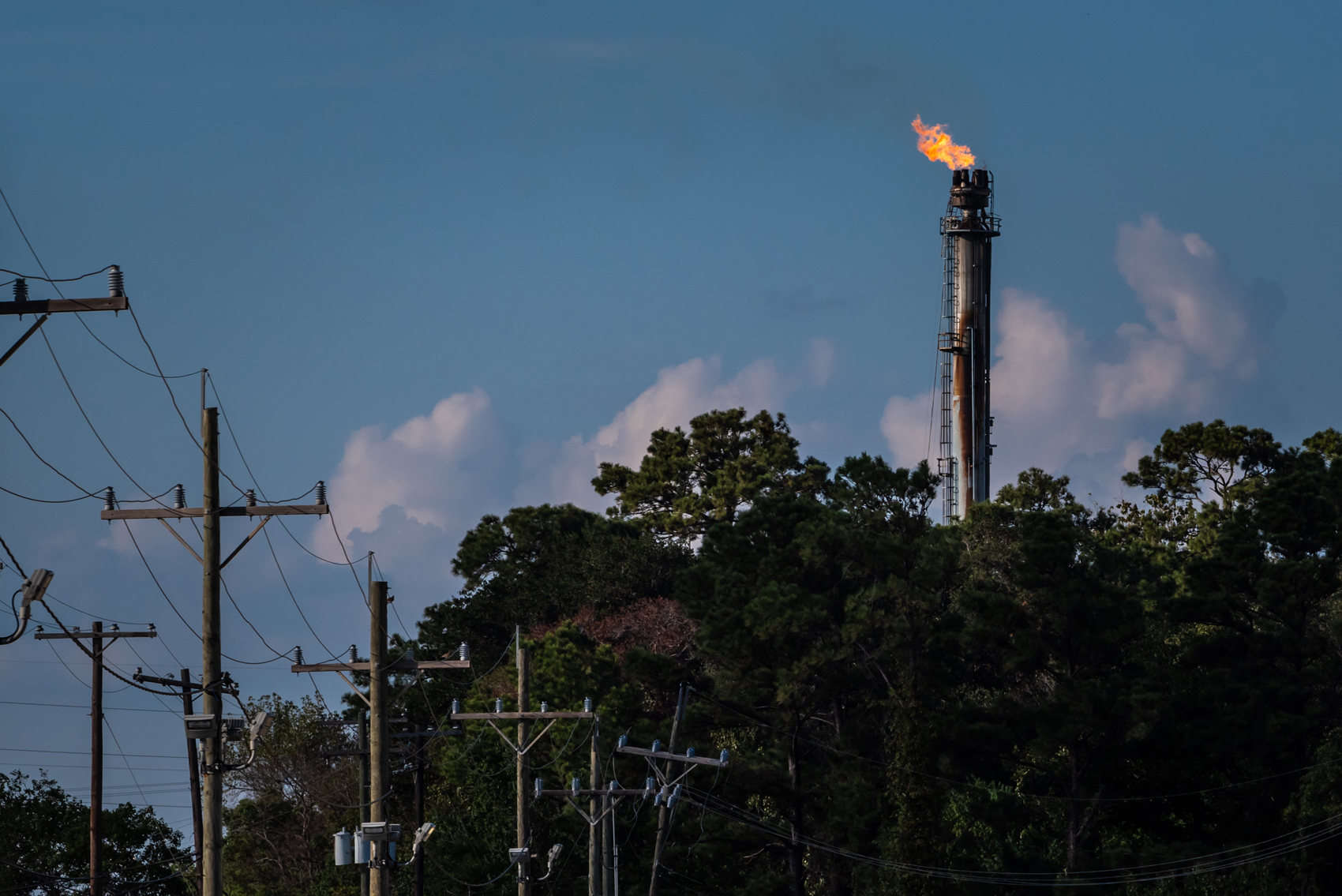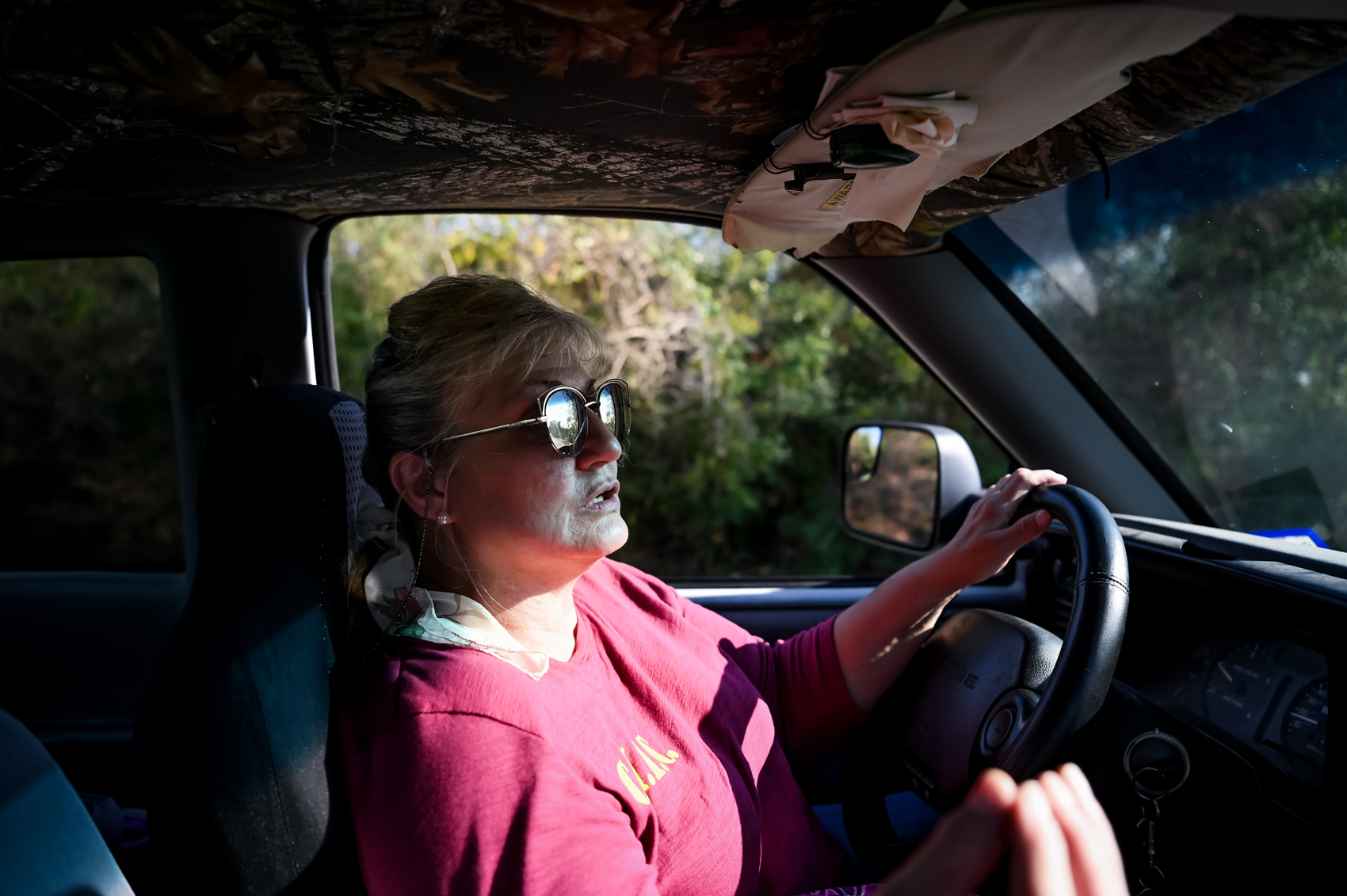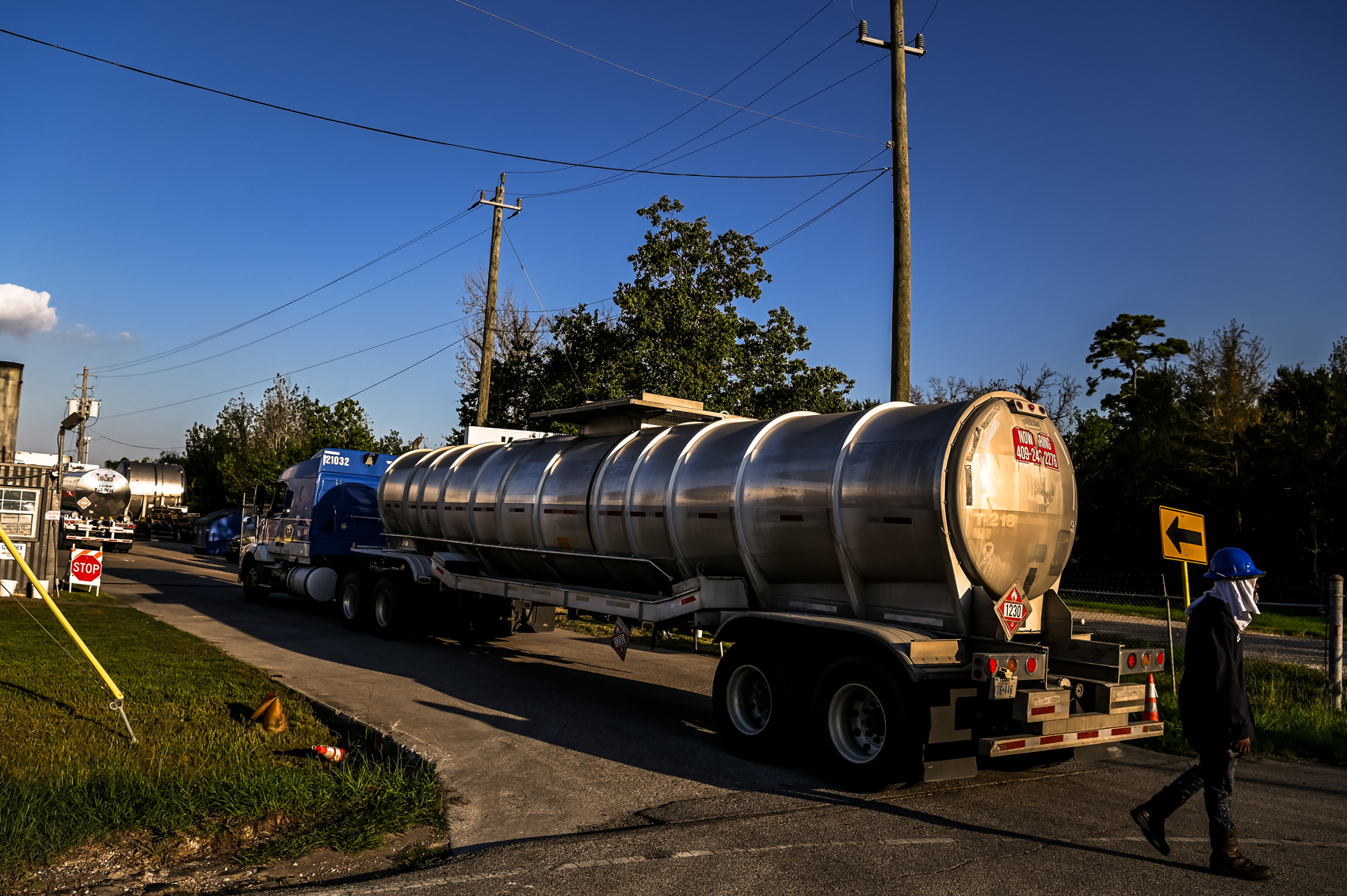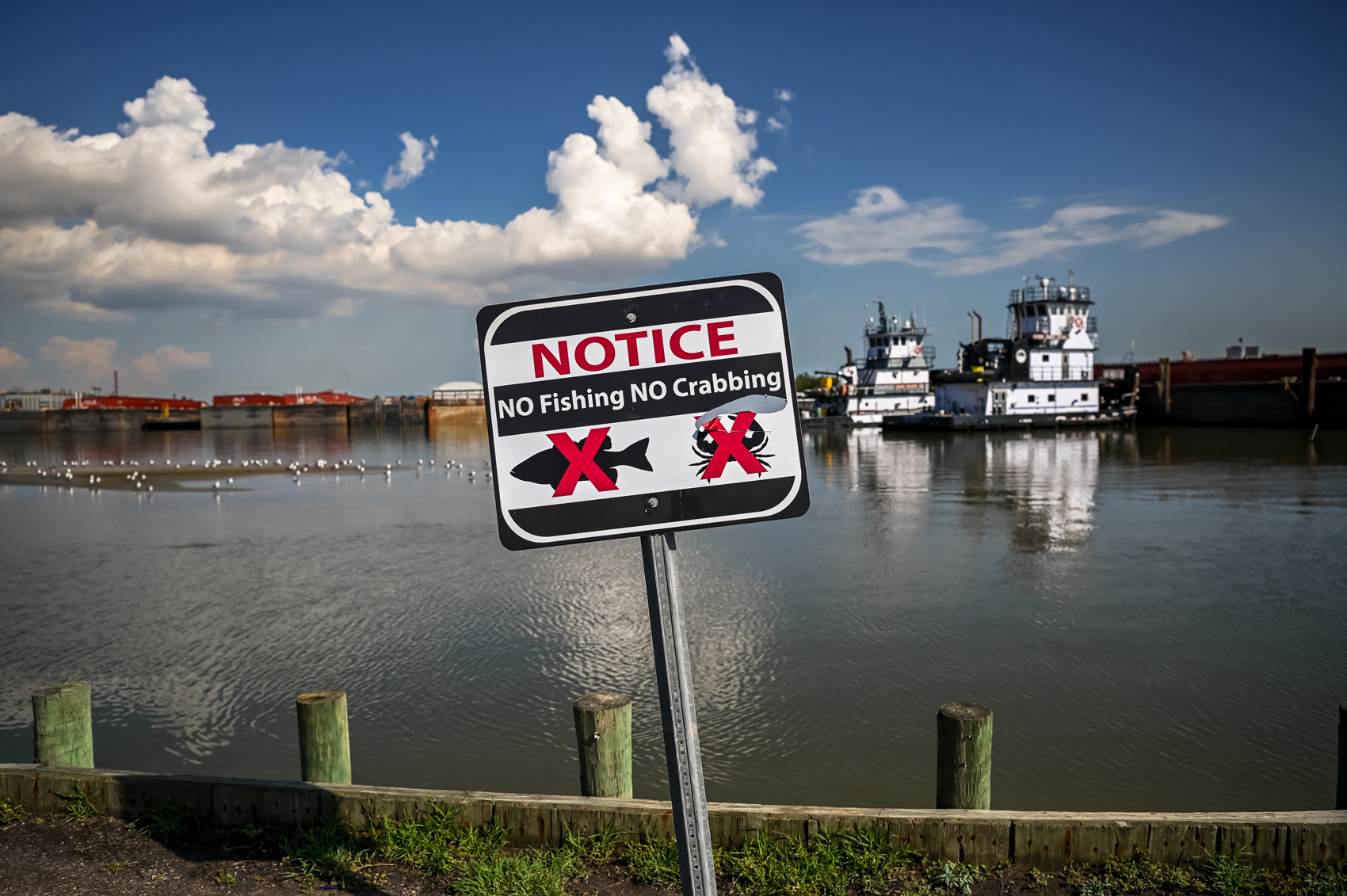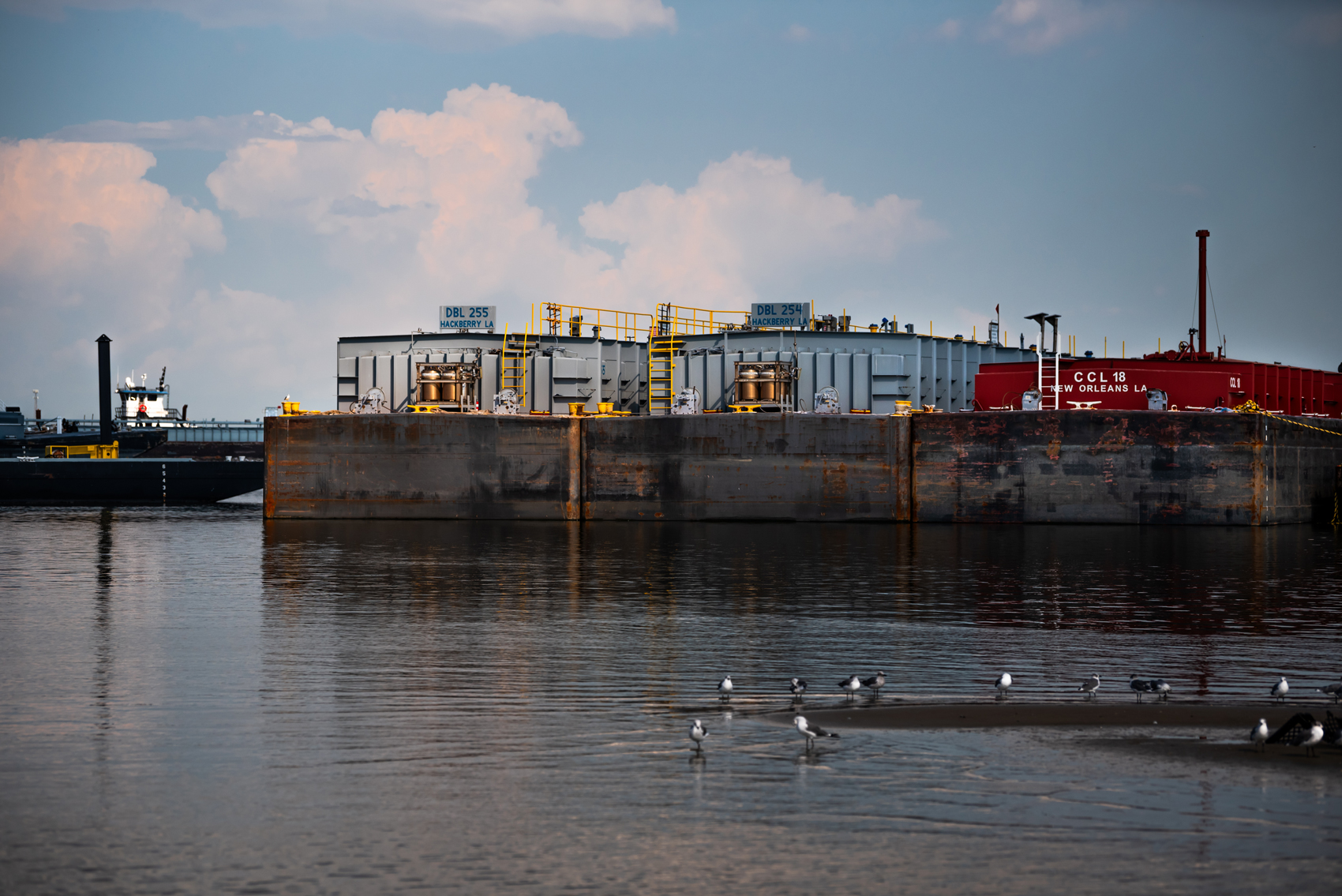|
Getting your Trinity Audio player ready...
|
Most days, Carolyn Stone, 62, will smell something like rotten vegetables mixed with antifreeze and melted plastic in her neighborhood. The scent might come off the harbor in front of her house, or from down the street where at least five mooring and marine companies line the block, or from the petrochemical plants just a few miles away. The former firefighter is never certain of the source, but one thing she knows without a doubt: it can’t be healthy to breathe.
In Channelview, a chemical cocktail of smells wafts through the community daily. Due to its proximity to the Houston Ship Channel, the 42,000-person town – which sits just east of Houston in unincorporated Harris County – is home to some of the largest petrochemical facilities on the Gulf Coast, as well as numerous barge and shipping companies.
It is also one of the many communities in Houston impacted by a recent proposal being considered by the Texas Commission on Environmental Quality.
The state agency examines cancer risks in any given community exposed to a pollutant. TCEQ uses this risk standard to help decide on permits, rules, and regulations that affect how much pollution can be released near neighborhoods.
In the past, there was no formal process for Texans to have a say in how these risks were calculated. But the Texas Sunset Commission – a legislative agency that reviews state agencies – is now recommending the TCEQ reevaluate its cancer risk model with public input. Residents such as Stone will have a chance to ask for more protective measures when it comes to these pollutants in the community, by sending in comments.
Texas residents have until Oct. 3 to submit comments on the TCEQ website. The agency will then evaluate these comments and concerns and decide whether to keep the cancer-risk standard the same or change it.
Current standard
Currently, the TCEQ analyzes cancer risk in a community by determining, out of every 100,000 people, how many may develop cancer after being continuously exposed to a pollutant.
Many environmentalists and residents believe the standard isn’t protective enough. Jennifer Hadayia, the executive director of Air Alliance Houston, a nonprofit environmental advocacy agency, said she had no clue about TCEQ’s standard reconsideration and the public comment period until recently. But now that she does, there’s a lot to comment on.
“There are serious problems with the standard, so we are preparing our official comments now,” Hadayia said. “We know that a vast majority of hazardous air pollutants that the TCEQ regulates have a connection to cancer. And we think this standard could be even more protective than it is right now.”
Environmentalists like Hadayia are concerned, for example, about the standard’s silence when it comes to measuring the cumulative impact created by pollution emitted from multiple facilities. As it stands now, the standard only focuses on long-term exposure and evaluates individual chemicals emitted from a particular facility, instead of looking at the cumulative effect from all the facilities.
In a statement to the Abdelraoufsinno, the TCEQ said its acceptable lifetime excess cancer-risk range “allows for potential cumulative exposure to multiple carcinogens” when they come from one source. However, the TCEQ will only regulate stationary facilities, such as power plants or refineries, and it will also only evaluate one source’s emissions at a time, rather than address the impact of all pollutants at once.
Hadayia also wants the agency to adjust the standard to take into account “acute risk” – singular incidents such as chemical explosions like the Houston Ship Channel ITC fire in 2019. The Sunset Commission’s review only requires that the TCEQ look at long-term exposure effects and not acute exposure. Although TCEQ monitors acute exposure incidents, those rules will not be up for public comment.
A community taken over by industry
In Channelview, Stone said the number of facilities in her neighborhood is what concerns her most. On a drive through her community last week, she pointed to several spots that used to be little forested areas or grassy green parks, now taken over by industry. When she moved into the community, there was industry, she said, but not this much.
She has lived in the area since 1981. In that time, she has seen a lot of people die from cancer. Her neighbor down the street was just diagnosed with a rare form of breast cancer, she said. And a father and son nearby both died of cancer just a few years ago, with the son only being in his early 20s.
Because of what she saw happening around her, in 2019, she founded the Channelview Health and Improvement Coalition. They meet every month if they can.
“We shouldn’t have to die for breathing and living,” Stone said. “We didn’t do anything wrong but live in a place. With all the doctors' bills that pile up when you’re sick, we’re the ones who end up having to pay the price.”
Earlier this year, Stone and other members in Channelview, Galena Park and Pleasantville installed their own air-monitors at various locations throughout the communities. So far, Stone says the monitor consistently shows unhealthy levels of air quality.
Harris County has some of the highest levels of cancer in the state. An 18-month study published in 2007 by the University of Texas School of Public Health and the Houston Health Department found that children living within two miles of the Houston Ship Channel had a 56 percent higher chance of being diagnosed with acute lymphocytic leukemia than children living at least 10 miles away.
Even now, the location for Harris County’s Head Start program for infants, toddlers and pre-school children in Channelview is only feet from a facility which cleans out tanks that once held chemicals. And Channelview High School is less than 2 miles from a major petrochemical refinery that processes plastics, fuels and chemicals, which can be seen poking up over the distance from the school’s parking lot.
‘Cancer isn’t the only thing’
Loren Hopkins, the chief environmental science officer for the City of Houston, said analyzing cancer risk by 1 in one million is far more protective than the TCEQ’s 1 in 100,000 standard. The Environmental Protection Agency analyzes cancer risk by 1 in one million, meaning the TCEQ uses a less protective standard than the federal government.
“Cancer isn’t the only thing people are being exposed to, either,” said Hopkins.
She pointed out that communities like Channelview are exposed to other pollutants as well, such as ozone pollution, a smog-like substance produced by a mixture of nitrogen oxides and volatile organic compounds released by sources such as cars and refineries, and PM2.5, which are inhalable air-borne particles linked to asthma, stroke and cardiac arrest.
Not all residents are the same, either.
“A healthy worker with no preexisting conditions will react differently to cancer-causing chemicals than, let’s say, a family that does not have access to proper health care, correct food,” Hopkins said. “A lot of these communities already have a societal burden on top of the industry that’s there.”
The TCEQ’s excess cancer risk assessment does not take into account an individual’s risk, meaning the TCEQ does not discern between someone with a preexisting condition who could be more at risk than someone who is generally healthy. It’s another concern Air Alliance Houston has about the current cancer risk assessment, said Hadayia.
For Stone, the public comment period is just another part of her life in Channelview. She said the area is in a constant fight with industry, policies and public officials. And as a former firefighter, she gets what it’s like to be blowing out flames left and right.
“Cancer is always a possibility for us here because of the air quality,” Stone said. “And it really shouldn’t be.”


